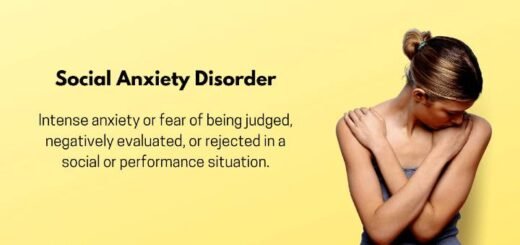Mindfulness Strategies to Conquer Social Anxiety
In today’s fast-paced world, anxiety often undermines our ability to engage socially, leaving many feeling isolated and overwhelmed. Mindfulness and relaxation techniques have emerged as powerful tools to combat anxiety, fostering emotional resilience and enhancing social confidence. By integrating these practices into daily routines, individuals can equip themselves with effective social confidence strategies that enable them to navigate social situations with ease and poise.
In New Zealand, where community connections play a vital role in overall well-being, adopting mindfulness techniques can significantly improve one’s ability to interact confidently. From breathing exercises to meditation, these strategies not only alleviate anxiety but also promote a sense of belonging and self-assurance. Embracing mindfulness is key to unlocking the potential for meaningful social interactions, providing a pathway to enhanced social confidence in a supportive environment.
Understanding Mindfulness and Its Role in Anxiety Management
What is Mindfulness?
Mindfulness is the practice of being fully present and engaged in the moment without judgment. It allows individuals to focus on their thoughts, feelings, and surroundings. This practice can be particularly beneficial for those struggling with anxiety. By fostering awareness, mindfulness helps individuals recognize anxious thoughts without becoming overwhelmed.
The Science Behind Mindfulness
Research indicates that mindfulness can significantly reduce anxiety levels. Studies show that regular mindfulness practice can change brain activity, particularly in areas associated with stress and emotional regulation. By engaging in mindfulness, individuals can lower their heart rate and cortisol levels, leading to a calmer state of mind.
Mindfulness Techniques for Anxiety
There are several mindfulness techniques that can be easily incorporated into daily life. One popular method is mindful breathing, where individuals focus on their breath to anchor themselves in the present moment. Another technique is body scanning, where one mentally scans their body for tension and consciously relaxes each part.
Mindfulness in New Zealand
In New Zealand, mindfulness workshops are becoming increasingly popular. Many community centers and health organizations offer courses that teach these techniques. Participating in local events can be an excellent way to meet people while enhancing social confidence.
Incorporating Mindfulness into Social Situations
Mindfulness can also be applied in social settings. Before entering a social gathering, take a moment to breathe deeply and set a positive intention. Remind yourself that everyone is human and has their insecurities. This perspective can help alleviate anxiety.
Resources for Mindfulness
For those seeking structured guidance, online resources like Social Phobia New Zealand provide valuable information and techniques. These resources can offer insights into how mindfulness can work alongside other social confidence strategies.
Creating a Mindfulness Routine
Establishing a regular mindfulness routine is essential for long-term benefits. Start with just a few minutes each day and gradually increase the duration. Consider integrating mindfulness into activities like walking or eating, which can transform everyday experiences into moments of awareness.
Relaxation Techniques to Combat Anxiety
What Are Relaxation Techniques?
Relaxation techniques are practices designed to reduce stress and promote a state of calm. These strategies can be particularly effective for those facing anxiety in social situations. By learning to relax, individuals can enhance their social confidence and engage more fully with others.
The Benefits of Relaxation Techniques
Engaging in relaxation techniques can lead to numerous health benefits, including reduced muscle tension, lower blood pressure, and improved mood. Additionally, these practices can help individuals manage their anxiety more effectively, allowing them to participate in social activities without overwhelming fear.
Popular Relaxation Techniques
Some popular relaxation techniques include progressive muscle relaxation, guided imagery, and meditation. Progressive muscle relaxation involves tensing and relaxing different muscle groups, while guided imagery focuses on visualizing peaceful settings. These techniques can be practiced individually or in groups.
Relaxation Techniques in New Zealand
New Zealand offers a variety of classes and workshops focused on relaxation techniques. Many wellness centers provide sessions that incorporate elements of both relaxation and mindfulness, making them ideal for those looking to enhance their social skills.
Using Relaxation Techniques Before Social Events
Before attending a social gathering, practice a relaxation technique to help alleviate anxiety. For instance, take a few moments to perform deep breathing exercises, focusing on inhaling and exhaling slowly. This practice can create a sense of calm before entering a potentially stressful environment.
Combining Relaxation with Mindfulness
Combining relaxation techniques with mindfulness can amplify their effects. For example, while practicing deep breathing, focus on your breath and observe any sensations in your body. This dual approach can enhance your ability to remain calm and present in social situations.
Finding Support for Relaxation Techniques
Many online resources, such as Social Phobia New Zealand, offer guidance on various relaxation techniques. Engaging with these platforms can help individuals find the support and resources necessary to effectively manage their anxiety and improve social confidence.
Social Confidence Strategies for Overcoming Anxiety
Understanding Social Anxiety
Social anxiety is characterized by intense fear or apprehension in social situations. It can hinder personal relationships and professional opportunities. Understanding the nature of social anxiety is the first step towards managing it effectively.
Identifying Triggers
To develop effective social confidence strategies, it’s essential to identify specific triggers. Common triggers include public speaking, meeting new people, or attending social events. By recognizing these triggers, individuals can prepare themselves and develop coping strategies.
Gradual Exposure to Social Situations
One effective strategy for enhancing social confidence is gradual exposure. Start by engaging in low-pressure social situations, such as small gatherings with friends. Gradually increase the complexity and size of social interactions to build confidence over time.
Role-Playing and Practice
Role-playing can be a valuable tool for improving social skills. Practicing conversations with a trusted friend or family member can help reduce anxiety in real-life situations. This practice allows individuals to become more comfortable with various social scenarios.
Utilizing Community Resources
In New Zealand, many community organizations offer workshops and support groups for individuals dealing with social anxiety. Participating in these programs can be an excellent way to learn social confidence strategies while connecting with others who share similar experiences.
Setting Realistic Goals
Setting achievable goals is crucial for building social confidence. Start by establishing small, manageable objectives, such as initiating a conversation with a colleague. Celebrate each success, no matter how small, to reinforce positive behavior.
Seeking Professional Help
For those struggling with social anxiety, seeking professional help can be beneficial. Therapists specializing in anxiety and social skills can provide tailored strategies to improve confidence. Resources like Social Phobia New Zealand can connect individuals with qualified professionals.
Integrating Mindfulness and Relaxation into Daily Life
Establishing a Daily Routine
Integrating mindfulness and relaxation techniques into daily life requires commitment and consistency. Start by setting aside a specific time each day for practice, whether it’s in the morning or before bed. Consistency is key to experiencing the benefits.
Mindful Moments Throughout the Day
Incorporate mindful moments into your daily routine. This could be as simple as taking a moment to breathe deeply before a meeting or savoring the taste of your food during lunch. These small practices can help cultivate a sense of presence and reduce anxiety.
Creating a Relaxation Space
Designate a specific area in your home for relaxation and mindfulness practice. This space should be comfortable and free from distractions. Having a dedicated area can serve as a reminder to take time for yourself amidst a busy schedule.
Utilizing Technology
There are numerous apps available that can guide users through mindfulness and relaxation practices. Consider using apps that offer guided meditations or relaxation exercises to enhance your practice. Many of these apps can be easily accessed on smartphones, making them convenient for daily use.
Engaging with Nature in New Zealand
New Zealand’s stunning landscapes provide an excellent backdrop for mindfulness and relaxation practices. Spend time outdoors, whether it’s hiking in the bush or enjoying a beach walk. Nature has a calming effect and can enhance your overall well-being.
Incorporating Mindfulness into Exercise
Physical activity can be a powerful tool for managing anxiety. Consider incorporating mindfulness into your exercise routine. While jogging or practicing yoga, focus on your breath and body sensations, allowing yourself to be present in the moment.
Tracking Your Progress
Keeping a journal can help track your mindfulness and relaxation practices. Document your experiences, feelings, and any changes in anxiety levels. This reflection can provide valuable insights and motivate you to continue your journey.
Building a Support System for Anxiety Management
The Importance of a Support Network
A strong support system is vital for managing anxiety. Surrounding yourself with understanding friends and family can create a safe space for expressing feelings and sharing experiences. This support can significantly enhance social confidence.
Joining Social Anxiety Support Groups
Consider joining a local support group for individuals dealing with social anxiety. These groups provide a supportive environment to share experiences, learn from others, and practice social skills. Many organizations in New Zealand facilitate such groups, making it easier to connect with others.
Engaging in Group Activities
Participating in group activities can also help build social confidence. Look for clubs or classes that align with your interests, such as art classes or sports teams. Engaging in these activities allows for social interaction in a relaxed setting.
Sharing Your Journey
Opening up about your experiences with anxiety can foster connection and understanding. Consider sharing your journey with trusted friends or family members. This vulnerability can help deepen relationships and create a sense of community.
Online Communities and Resources
In addition to local support, online communities can be a valuable resource for those managing social anxiety. Platforms like forums and social media groups provide a space to connect with others facing similar challenges, offering
FAQs
What is mindfulness and how does it relate to anxiety management?
Mindfulness is the practice of being fully present and engaged in the moment, without judgment. It helps manage anxiety by allowing individuals to observe their thoughts and feelings without becoming overwhelmed by them. By cultivating mindfulness, one can develop greater awareness of anxiety triggers and learn to respond more calmly, ultimately enhancing social confidence strategies.
What relaxation techniques can help alleviate anxiety?
Several relaxation techniques can be effective in alleviating anxiety, including deep breathing exercises, progressive muscle relaxation, and guided imagery. These techniques promote relaxation and can be easily integrated into daily routines, providing a foundation for building social confidence strategies when facing social situations.
How can mindfulness improve social confidence?
Mindfulness encourages individuals to focus on the present moment rather than worrying about past or future interactions. This shift in focus can reduce anxiety in social situations, allowing for improved communication and interaction. As a result, practicing mindfulness can enhance social confidence by fostering a more positive self-image and reducing fear of judgment.
What are some practical mindfulness exercises for beginners?
Beginners can start with simple mindfulness exercises such as mindful breathing, where one focuses on their breath for a few minutes, or body scan meditation, which involves paying attention to different parts of the body. These practices can help individuals cultivate awareness and calmness, laying the groundwork for effective social confidence strategies.
Can mindfulness and relaxation techniques be used together?
Yes, mindfulness and relaxation techniques can complement each other effectively. Combining mindfulness practices with relaxation exercises, such as deep breathing or meditation, can enhance overall effectiveness in managing anxiety and fostering social confidence. This integrated approach allows individuals to not only relax but also develop a greater awareness of their thoughts and feelings in social contexts.
How long does it take to see results from mindfulness and relaxation techniques?
The time it takes to see results can vary from person to person. Some individuals may experience immediate benefits, such as reduced anxiety in social situations, while others may need consistent practice over weeks or months to notice significant changes. Regular practice of mindfulness and relaxation techniques is key to enhancing social confidence and managing anxiety effectively.
Are there any resources or apps to help with mindfulness and relaxation practices?
Yes, there are many resources and apps available to assist with mindfulness and relaxation practices. Popular apps like Headspace, Calm, and Insight Timer offer guided meditations, relaxation techniques, and mindfulness exercises tailored to various needs. These tools can be particularly helpful in developing effective social confidence strategies and managing anxiety in everyday life.
References
- Mindfulness: A Beginner’s Guide – Psychology Today – An overview of mindfulness, its benefits, and practical steps to incorporate it into daily life, focusing on reducing anxiety and enhancing social interactions.
- Mindful – Mindful Magazine – A resource dedicated to mindfulness practices and techniques, offering articles, guided meditations, and insights into how mindfulness can improve mental health and social confidence.
- Anxiety Canada – Anxiety Resources and Tools – Provides information and tools for managing anxiety, including mindfulness and relaxation techniques specifically designed to enhance social confidence.
- What Is Mindfulness? – Verywell Mind – A comprehensive explanation of mindfulness, its impact on anxiety management, and suggestions for practicing mindfulness in social situations.
- Social Phobia Support – New Zealand – A platform offering support, resources, and techniques for individuals dealing with social anxiety, including mindfulness and relaxation strategies.




